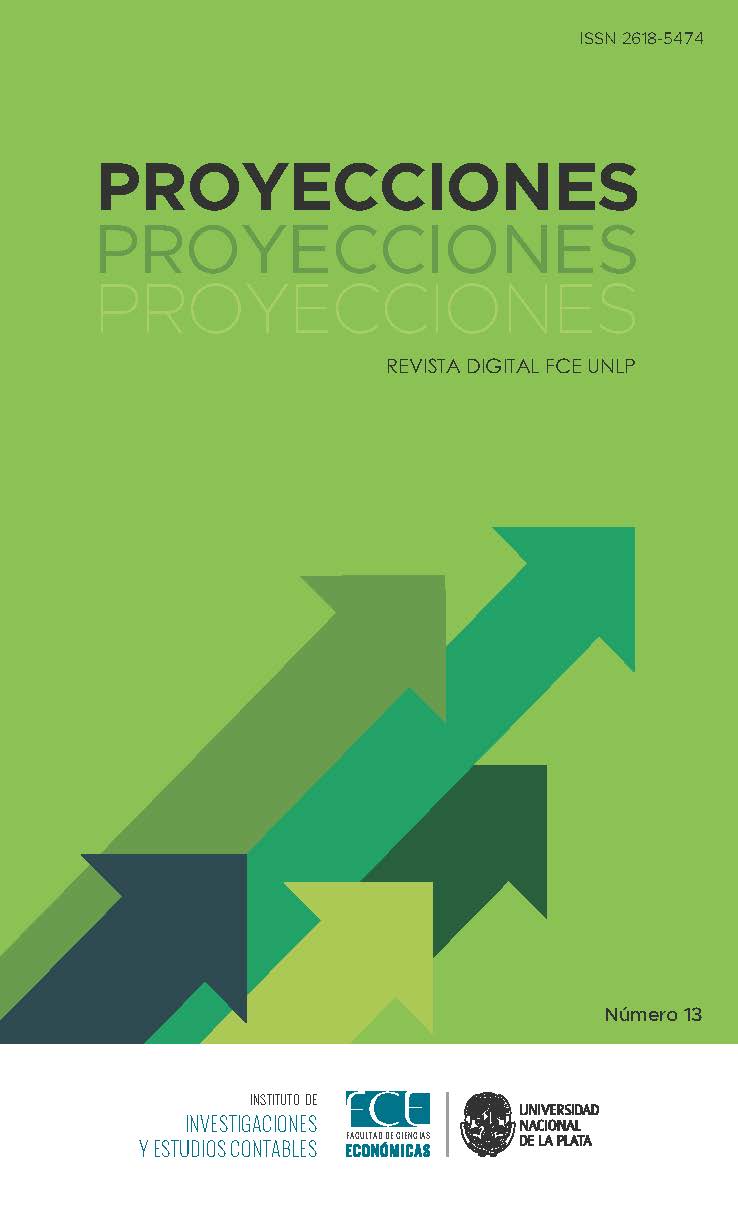A methodological conception of laboral practice with a systematic approach in the integrative subjects of the public accounting career of the autonomous university Tomás Frías (U.A.T.F.)
DOI:
https://doi.org/10.24215/26185474e004Keywords:
Laboral practice, Systemic approach, Integrative subjects, CurriculumAbstract
Laboral practice is an organizational component of the Teaching-Learning Process in which the skills of the graduate object that manifest their logic of thinking and acting are developed and in which study is mainly related to work.
The professional careers, in their intention to improve the quality of the professional training, have tried to articulate the academic and laboral components within the process, however they have not done so in an integral way, since basic and complementary contents for the professional training are provided, it seeks to promote the development of skills related to the activity of the professional trying to link the student with the world of work but only in semesters close to graduation. The Public Accounting career of the Autonomous University "Tomás Frías" is not outside this problem, as subjects with work practice are given with emphasis in the upper semesters.
The problem arises in the impossibility of integrating the labor and research component and including in the contents of the subjects and these with the semesters from the first semesters, to guarantee the graduate or graduate a training that allows an efficient development in a market highly competitive professional, where he must also meet the demands of technological development and special work characteristics.
Following the current trends in education towards the labor training approach, the productive and social sector of each country constitutes a source that allows the professional training of students in the Public Accounting career. The proposal refers to incorporating laboral practice in a systemic manner from the second semester to conclude in the ninth semester of the Public Accounting Career.
It is intended to organize and conform three levels of work practice with a systemic approach: Basic, Intermediate and Higher according to its complexity at each level and in a progressive manner that allows the integration of student training from the beginning to the end of the career, instant in which a database accumulated by teachers and students will be formed, the same that can be fed back by other teachers and students, allowing to project a curriculum with a scientific-technological approach.
The 1st level of basic laboral practice includes the familiarization process, the 2nd level corresponds to the simulation process and the 3rd level of laboral practice translates into the realization of it.
The core subjects are integrated with the remaining subjects of each semester to contribute to the fulfillment of the horizontal objectives of the academic semester, and on the other hand the subjects are integrated vertically throughout the race, to contribute in a staggered way in the development and the exercise of tasks, which allow them to acquire professional skills.
Downloads
Metrics
References
Álvarez de Zayas, C. (1994). La Escuela en la Vida. Sucre, Bolivia: Imprenta Universitaria.
Cerezal Mezquita, J. y Fiallo Rodríguez, J. (2001). Los métodos teóricos en la investigación pedagógica. En Desafío Escolar. Revista Iberoamericana de Pedagogía. Año 5. Edición Especial, 62-64.
Edición de la Carrera de Auditoría-Contaduría Pública (2001). Informe de Reuniones Presectoriales de Ajuste, 2001.
Florez Ochoa, R. (1994). La Pedagogía del Conocimiento. Bogotá: Me Graw Hill.
Mestre Gómez, U., Fuentes González, H. y Cruz Baranda, S. (s.f.). Hacia una concepción curricular en base a la lógica esencial de la profesión. Obtenida el 8 de julio de 2002 de
https://www.monografias.com/trabajos10/cocur/cocur.shtml
Orozco, C. (2007). Análisis Administrativo Técnicas y Métodos. San Juan, Costa Rica: EUNED.
Rodríguez Valencia J. (1996). Introducción a la Administración con enfoque de sistemas. México: ECASA.
Terán Pareja, J. (2006). Práctica Laboral. Proyecto de Vida. Revista Punto de Vista Comunicación Educativa, Universidad Autónoma Tomás Frías, Vicerrectorado Dirección de Postgrado, vol. I, 37-40.
Universidad Autónoma "Tomás Frías" U.A.T.F. (2001). Plan de Desarrollo Institucional 2002-2006.
Universidad Autónoma Tomás Frías (2003). Proyecto Universitario de Rediseño Curricular, Dirección de Planificación Universitaria. Potosí, Bolivia.
Downloads
Additional Files
Published
How to Cite
Issue
Section
License
El material publicado en la revista se distribuye bajo una licencia de Creative Commons de Atribución-NoComercial-SinDerivadas 4.0 Internacional (CC BY-NC-ND 4.0). Esta licencia obliga a otros a dar crédito de manera adecuada, brindar un enlace a la licencia, e indicar si se han realizado cambios; no permite hacer uso comercial de la obra; y si se remezclara, transformara o creara otro material a partir de la obra, no podrá ser distribuida esa modificación.




























